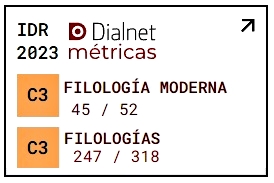Il Dialogo di un folletto e di uno gnomo: la critica di Leopardi all’antropocentrismo
DOI:
https://doi.org/10.7203/zibaldone.12.29507Keywords:
Anthropocentrism, Dialogue, Nature, Leopardi, Extinction Abstract
Abstract
In the Dialogue of one elf and one gnome, contained in Operette Morali of Giacomo Leopardi, the protagonists face with the sudden disappareance of the human race. They begin to speculate about the possible causes: all of their hypotesis implying that the humans themself caused their self-extinction. The nature is indifferent and capable to proceed. It is man who depends on nature and not vice-versa. The fairy-tail situation is a narrative opportunity that allows Leopardi to express his position against the separation from the nature. He leads us, through a dialectical game, to think about the illusory of the anthropocentrism. The extinction that Leopardi foreshadowed is today a non abstract risk. Leopardi’s choice of not-human being as characters, represent the intention of reducing man’s role. Leopardi denunces man’s presumption, naivety and limits: first of all the impossibility to achive an universal knowledge of the world and its rules.
 Downloads
Downloads
Downloads
Published
How to Cite
-
Abstract56
-
PDF 20
Issue
Section
License
![]()
This work is licensed under a Creative Commons Attribution 4.0 International License.
All contents of this electronic edition, except where otherwise noted, are distributed under a “Creative Commons Attribution 4.0 International License.” license (CC-by). You may read here the basic information and the legal text of the license. The indication of the license CC-by must be expressly stated in this way when necessary.
Self-archiving in repositories, personal webpages or similar, of any version other than the published by the Editor, is not allowed.






